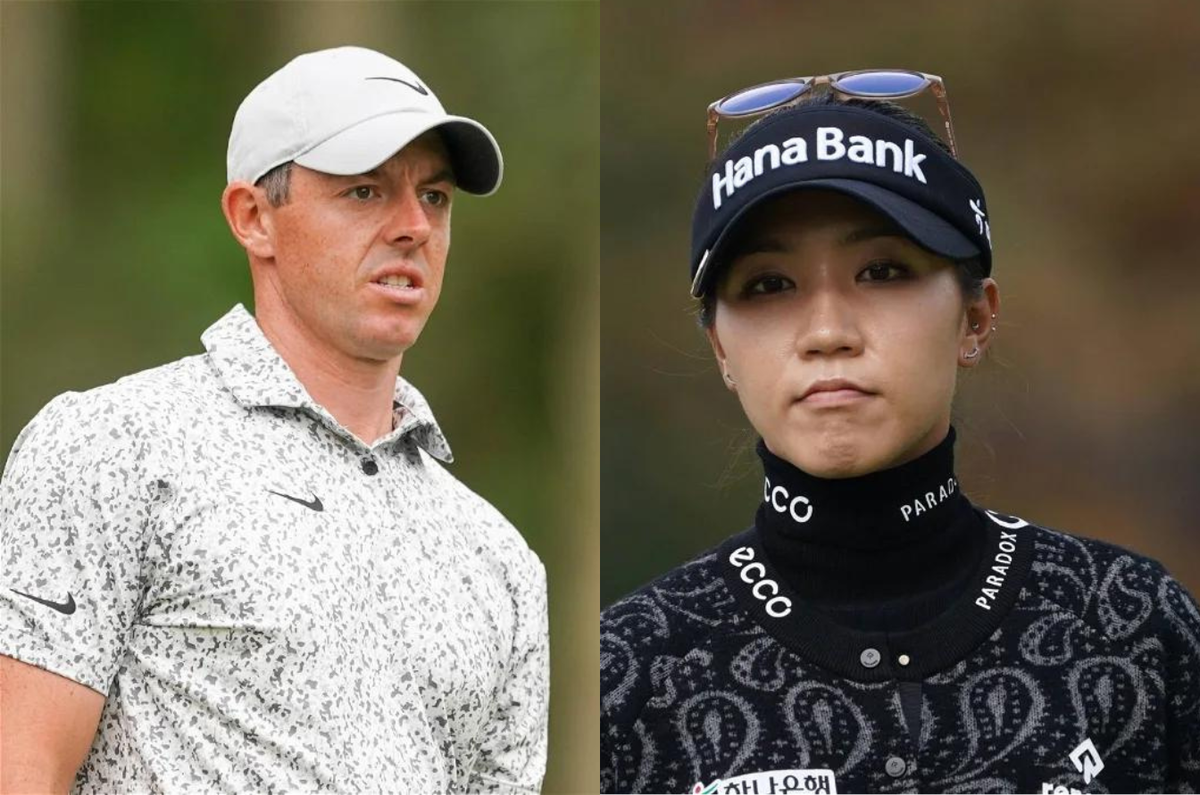

We all chase goals, thinking they’ll change our lives forever. But what happens when you actually catch what you’re chasing? Lydia Ko recently shared some uncomfortable truths about this very question. Her words cut straight to what drives players like Rory McIlroy. The revelation was made during a press conference at PGA Frisco, ahead of the 2025 KPMG Women’s PGA Championship. Most people expect lasting satisfaction from major accomplishments. Elite golfers discover a different truth entirely.
Watch What’s Trending Now!
“We’re greedy in that sense, like nothing will fulfill us fully until we’re done,” Ko explained when asked about the psychological aftermath of achieving major career milestones. She wasn’t apologizing. Instead, she was revealing the mindset that separates champions from everyone else. Ko speaks from experience about reaching career pinnacles. The New Zealand star became the youngest Hall of Fame inductee at 27 after winning Olympic gold in Paris, securing her 27th qualifying point. The aftermath surprised her completely.
“I think I thought my life or maybe the way I thought about myself would change when I got in the Hall of Fame and did a lot of the things I wanted to do before it actually happened,” Ko revealed when reflecting on her expectations versus reality after achieving the sport’s highest honor. The expected transformation never materialized. Instead, she discovered something more profound about elite competition, clearly. Ko’s journey to Hall of Fame qualification wasn’t without its challenges. The pressure had previously affected her performance, and 2024 was when she found her groove, winning three events. Ko drew direct parallels to McIlroy’s situation.
ADVERTISEMENT

Imago
Dec 14, 2024; Naples, Florida, USA; Lydia Ko walks on the first tee during the second round of the Grant Thornton Invitational at Tiburon Golf Club. Mandatory Credit: Reinhold Matay-Imagn Images
“I’m sure Rory is thinking the same in similar parts, where everybody was like, oh, Masters is the one he was missing. Like what if? And then he did it,” Ko said, referencing McIlroy’s dramatic playoff victory at the 2025 Masters in April. The Northern Irishman finally captured his elusive green jacket after an 11-year major drought, completing his career Grand Slam and joining only five other golfers in history to achieve this feat. Ever since, his performance has been stale, and his comments show how differently he thinks.
Top Stories
Greg Norman Puts Rory McIlroy, Tiger Woods on Blast for Never Confronting Him Directly

Patrick Reed Makes Feelings Clear on Quitting LIV Golf for the ‘Best’ PGA Tour

Nelly Korda Becomes a No Show as Tiger Woods’ WTGL Signs Charley Hull, Lexi Thompson & More

Augusta National’s Strict Actions Against Resellers Forces Ticketing Platform to Release Statement

LIV Golf Captain Publicly Disagrees With CEO Over League Overhaul

ADVERTISEMENT
How are Rory McIlroy’s and Ko’s mindsets completely different?
Ko’s “greedy” assessment appears particularly pointed, given McIlroy’s public disputes with reporters questioning his motivations. The Hall of Famer’s psychological insights serve as a timely reminder that even career-defining achievements don’t shield champions from criticism. Her comments arrive when McIlroy faces mounting pressure from journalists scrutinizing his every move since completing the career Grand Slam.
Rory finished T7 at the Truist Championship, and then at the PGA Championship, after the whole non-conforming driver fiasco, he finished 47th. Him not talking to the media for all four days added more fuel to the fire, but then Rory has claimed that he has found motivation since April.
ADVERTISEMENT
“You have this event in your life that you’ve worked towards, and it happens, sometimes it’s hard to find the motivation to get back on the horse and go again,” he said at the RBC Canadian Open, where he recorded his worst performance and missed the cut. Then, at Oakmont, his showing wasn’t much better. He barely finished 19th, and his words afterward reflected similar emotion.
“I climbed my Everest in April, and I think, after you do something like that, you’ve got to make your way back down, and you’ve got to look for another mountain to climb,” McIlroy said. “An Open at [Royal] Portrush is certainly one of those.”
Her insight reveals the psychological complexity behind major achievements – that external validation rarely transforms the internal drive that made champions successful in the first place. This mindset explains McIlroy’s continued pursuit of majors after early career success. Champions are wired differently from most people. Their “never enough” mentality creates both their greatest strength and biggest psychological challenge.
ADVERTISEMENT
What drives your competitive fire? Share your thoughts about Ko’s revealing insights into elite athlete psychology.
ADVERTISEMENT
ADVERTISEMENT
ADVERTISEMENT